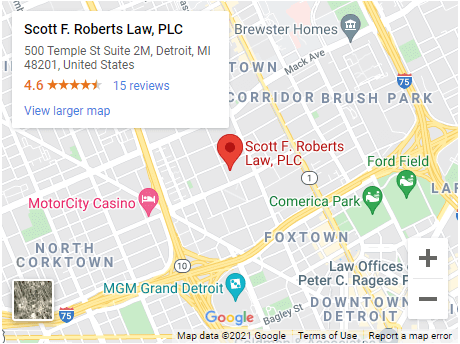One question that is commonly asked by small business owners is whether they should hold shares of their business in a revocable, (aka “living”) trust. Trusts allow business owners to pass on their ownership interests without involving the probate court. This can reduce the expenses related to appraising the interests and dividing it up among the owner’s heirs. Trusts also ensure the continuity of the business after the owner dies. If the business interests must instead pass through the probate court, the business will not have an owner until a personal representative is appointed by the court, which can take time.
In addition, trusts allow a business owner to protect his or her business interest from the owner’s own beneficiaries. In other words, a business owner may not want an irresponsible, minor or disabled beneficiary to directly inherit or control the business. A trust would allow the owner to appoint a trustee to control the business interests as well as prevent an irresponsible beneficiary from recklessly spending their inheritance.
While there are many advantages to putting your business interests in a trust, there are certain complications to doing so, including:
- When there is language in an operating agreement or buy-sell agreement limiting the transfer of ownership interests. Without language excepting transfers to self-settled trusts, the owner may need to obtain the consent of all of the other owners prior to transferring his or her interests into a revocable trust.
- When there are “feuding spouses” and a joint revocable trust. For example, say a business owner and the owner’s spouse disagree on how the business should be run. If both the owner and the owner’s spouse are named as trustees, and the trust does not contain language specifying how decisions regarding the trust’s interest in the company should be made, any disagreement could potentially paralyze the ability of the trust, and by extension the company, to act. This problem can be avoided by creating separate trusts for each spouse, or by adding language into a joint trust to clarify who controls which assets.
- When the trust owns shares in a “subchapter S corporation”. Sub-chapter S corporations may only own certain types of trusts and may only have one class of shares, though the terms of the trust can be carefully crafted to get around these restrictions. Limited liability companies avoid this issue entirely.
In certain situations, a family limited liability holding company may better protect an owner’s business interests and may provide certain tax advantages compared to a revocable trust. Revocable trusts also do not provide any meaningful creditor or asset protection by themselves, unlike LLCs and irrevocable trusts. In a future blog post, we will address the advantages and drawbacks of using family LLCs for estate planning and asset protection purposes.
When to Use Family Owned LLCs
Family LLCs are limited liability companies owned by members of the same family. Family LLCs may take the form of active businesses or mere holding entities containing family assets such as brokerage accounts or real estate assets. There are two main benefits to using family LLCs in the estate planning process—asset protection and intergenerational wealth transfers.

Because Family LLCs provide a layer of asset protection that revocable trusts do not, they are especially common among physicians or other professionals who may be personally liable for their malpractice or negligence. For example, let’s say a business owner, Sam, has real estate and brokerage account assets held in a revocable trust. If Sam is personally sued, then the plaintiff would be able to go after all of Sam’s real estate and brokerage account assets held by the trust. If these assets were instead held by a family LLC, the plaintiff would only be able to obtain a “charging order” that would entitle the plaintiff to any distribution that Sam would receive from the LLC. Thus, Sam could avoid paying the plaintiff’s claim by simply halting all LLC distributions.
Family LLCs also allow parents to “gift” interests in the LLCs to their children up to the gift tax amount (currently $14,000.00 per spouse per year). Thus, a couple with three children can gift up to $84,000.00 to their children tax-free each year. Parents can also transfer shares of a family business at a discounted valuation, due to the shares’ lack of control and marketability. This allows children to slowly “inherit” a small business over a period of several years without being subject to the estate tax, gift tax, or federal income tax. Parents also have the option to only transfer “non-voting” shares to their children, or to name themselves as managers of the LLC, which allows the parents to retain control over the company during their lifetime.
To illustrate this concept, let’s say Sam owns a business with a book value of $1,000,000. Sam has four children who he wants to inherit the company. He creates two classes of shares, manager shares, which hold ten percent of the company, and non-manager shares, which hold the remaining 90%. He can transfer his non-manager shares to his children at a discount due to their lack of control. Assuming this discount is 30%, the total value of the transfer is now $630,000. He would be allowed to transfer $14,000 per child per year, or $56,000 total, meaning he could transfer 90% of the ownership of his company over a period of 11 years virtually tax free.* This time would be cut in half if Sam’s spouse joins Sam in making the gifts.
In sum, family LLCs provide certain business owners with an extra layer of asset protection, while also providing certain tax advantages to business owners looking to pass their businesses down to the next generation.
Do You Need a Power of Attorney?
When most clients think estate planning, they think of wills and trusts. What are often forgotten are powers of attorney. Michigan clients should be aware of two types of powers of attorney (“POAs”):
1) Durable Powers of Attorney.
2) Healthcare Powers of Attorney.
Durable powers of attorney authorize other people—usually your spouse, children or other relatives—to make decisions for you when you are unable to do so yourself. There are plenty of other scenarios where a Durable POA will come into play—e.g. car accident, medical emergency, etc. If you do not have a durable POA, then your family must instead petition the court and have a judge find you incapacitated before they can act on your behalf.
The second type of POA, the Healthcare Power of Attorney, accomplishes two different objectives. First, a Healthcare POA appoints an individual to make healthcare decisions for you when you are “unable to participate in medical or mental health treatment decisions.” Second, a Healthcare POA gives instructions to the healthcare personnel and the person you appointed regarding your wishes. This can cover a whole range of issues, including whether you wish to be kept on life support, in what circumstances you would want your loved ones to “pull the plug”, whether you want to donate your organs, whether you consent to forced administration of medicine or mental health treatment, and others circumstances. In sum, durable and healthcare powers of attorney are an essential part of every Michigander’s estate and retirement plan.
Need more help? Call us at (248) 234-4060 to schedule an estate planning consultation to determine whether Family LLCs are right for you.




